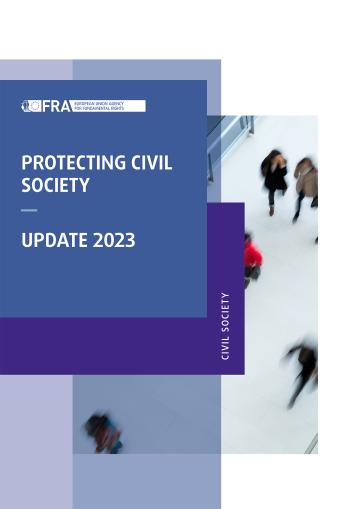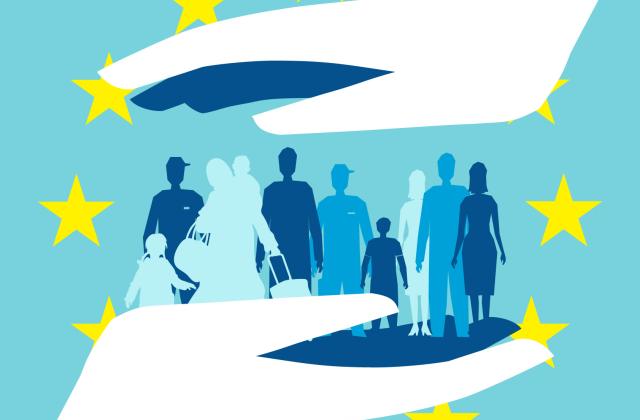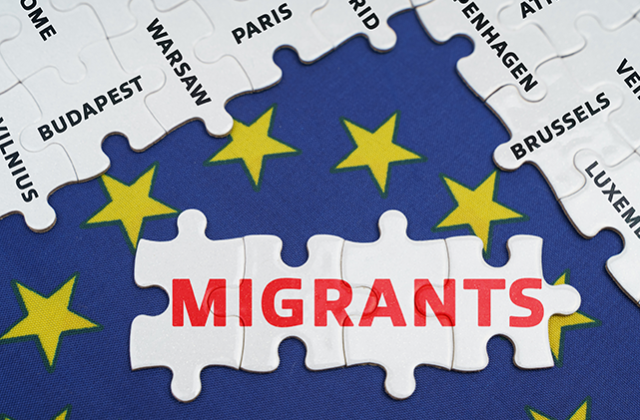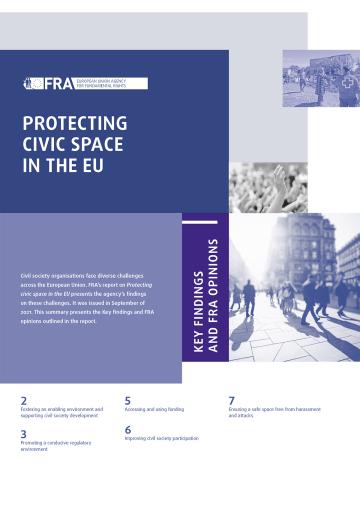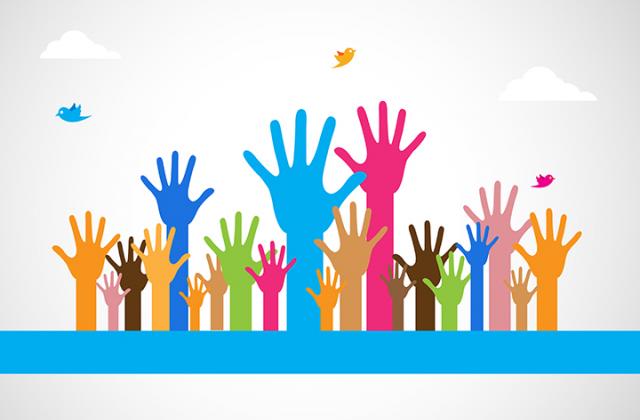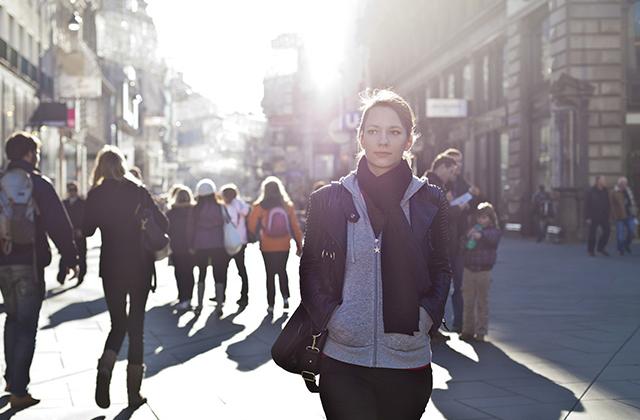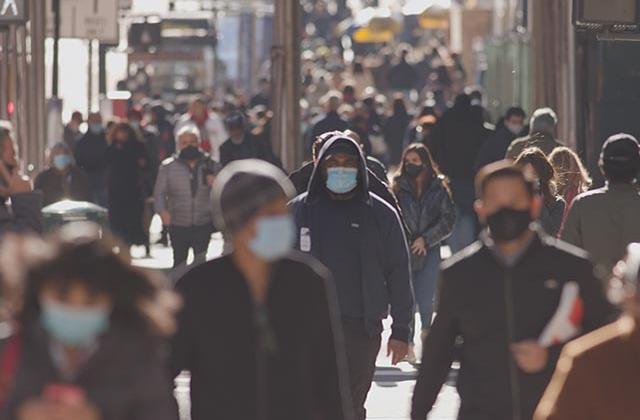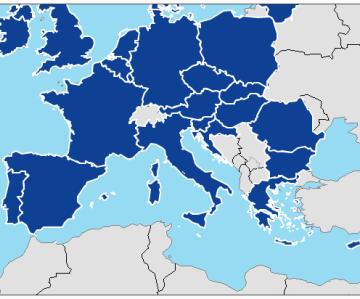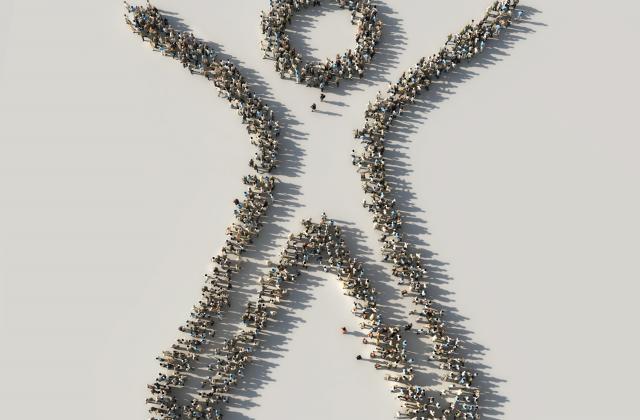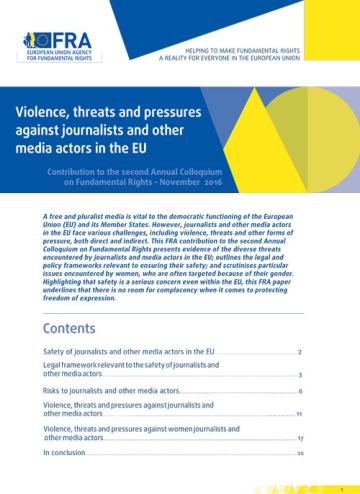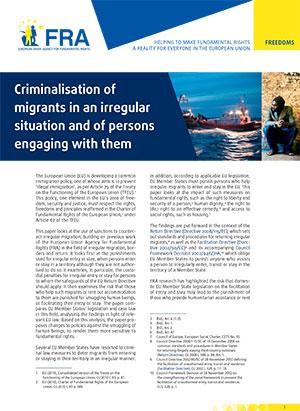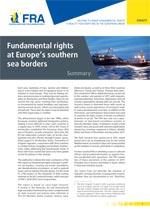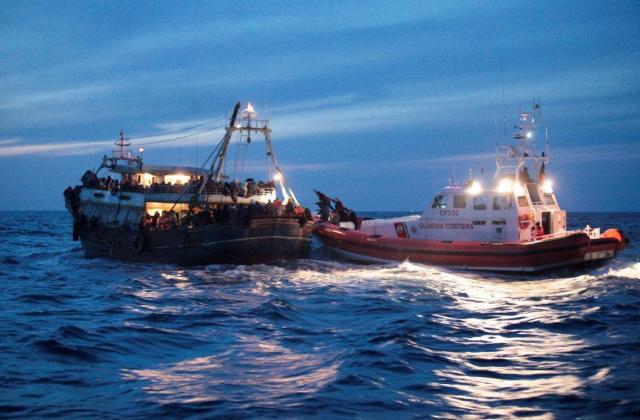The right to participation in public affairs is recognised in Article 25 of the International Covenant on Civil and Political Rights.[177] See the full text of the International Covenant on Civil and Political Rights on the OHCHR website. Civil participation is defined as “the engagement of individuals, NGOs and civil society at large in decision-making processes by public authorities”.[178] Council of Europe, Committee of Ministers (2017), Guidelines for civil participation in political decision making, 27 September 2017, p. 39. There are also EU-specific entitlements to participation, such as the right to access public documents (Article 42), the right to good administration (Article 41), the right to participate in local and European elections (Articles 39 and 40) and the right to submit a petition to the European Parliament (Article 44). In addition, all EU Member States have signed up to achieve the Sustainable Development Goal targets relevant to human rights defenders. For example, Sustainable Development Goal target 16.7 aims to “ensure responsive, inclusive, participatory and representative decision-making at all levels”.
Moreover, the participation of civil society in policymaking and decision-making processes is an indicator of democracy and contributes to the quality and sustainability of laws and policies.[179] FRA (2021), Protecting civic space in the EU, Luxembourg, Publications Office, p. 10. Under Article 11 of the TEU, the EU itself is obliged to give “citizens and representative associations the opportunity to make known and publicly exchange their views in all areas of Union action” and to “maintain an open, transparent and regular dialogue with representative associations and civil society”.
Structured dialogue and sustained participation in partnerships with CSOs are key to decision-making in law and policy concerning regulations and policies to ensure respect for fundamental rights. CSOs have specific knowledge and experience that is key to understanding and responding to fundamental rights challenges. CSOs are familiar with the specific needs of communities at risk, the challenges they face and the local context in which rights violations occur. Notwithstanding, CSOs often face important challenges in becoming real interlocutors and partners of public authorities, and providing victims with remedies when violations occur. In FRA’s latest civic space consultation, three quarters (76 %) of responding CSOs said they participate often or sometimes in public consultations on laws and policies (Figure 10).
Figure 10 – CSOs’ participation in public consultations on laws and policies in 2022 (%)
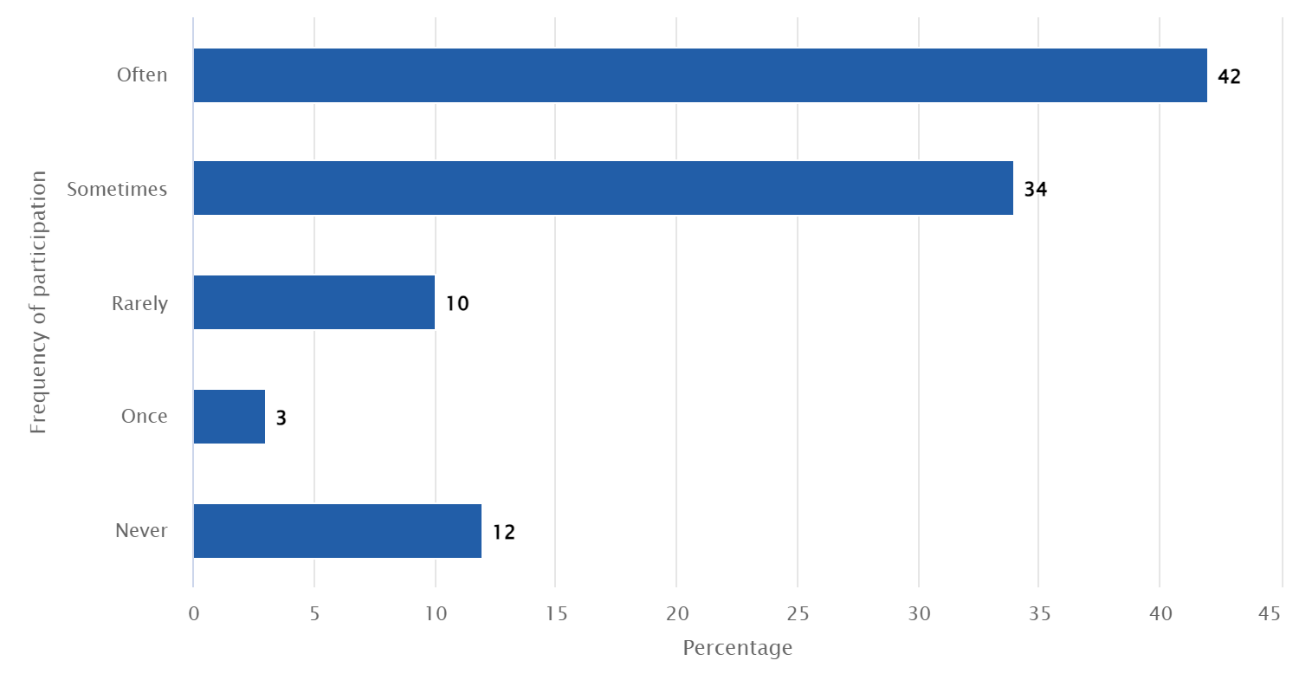
A bar chart shows what percentage of organisations participated in consultations. 42% or organisations participated often, 34% participated sometimes, 10% participated rarely, 3% had only participated once and 12% had never participated in a public consultation.
Notes: Question: “In the past 12 months, did your organisation participate in public consultations for law and policy making – either through online consultations, meetings, focus groups, interviews or other means?” N = 269.
Source: FRA’s civic space consultation 2022
The quality of consultation processes vary (see Figure 11). Considerable differences emerge between national and EU consultations. Some 58 % of the responding organisations found the quality of EU consultations acceptable, while the percentage was 39 % for national consultations. It is also interesting to note that 10 % of the responding organisations found the quality of EU consultations very high.[180] FRA’s 2022 civic space consultation.
Figure 11 – CSOs’ perception of the overall quality of consultation/participation processes in 2022 (%)
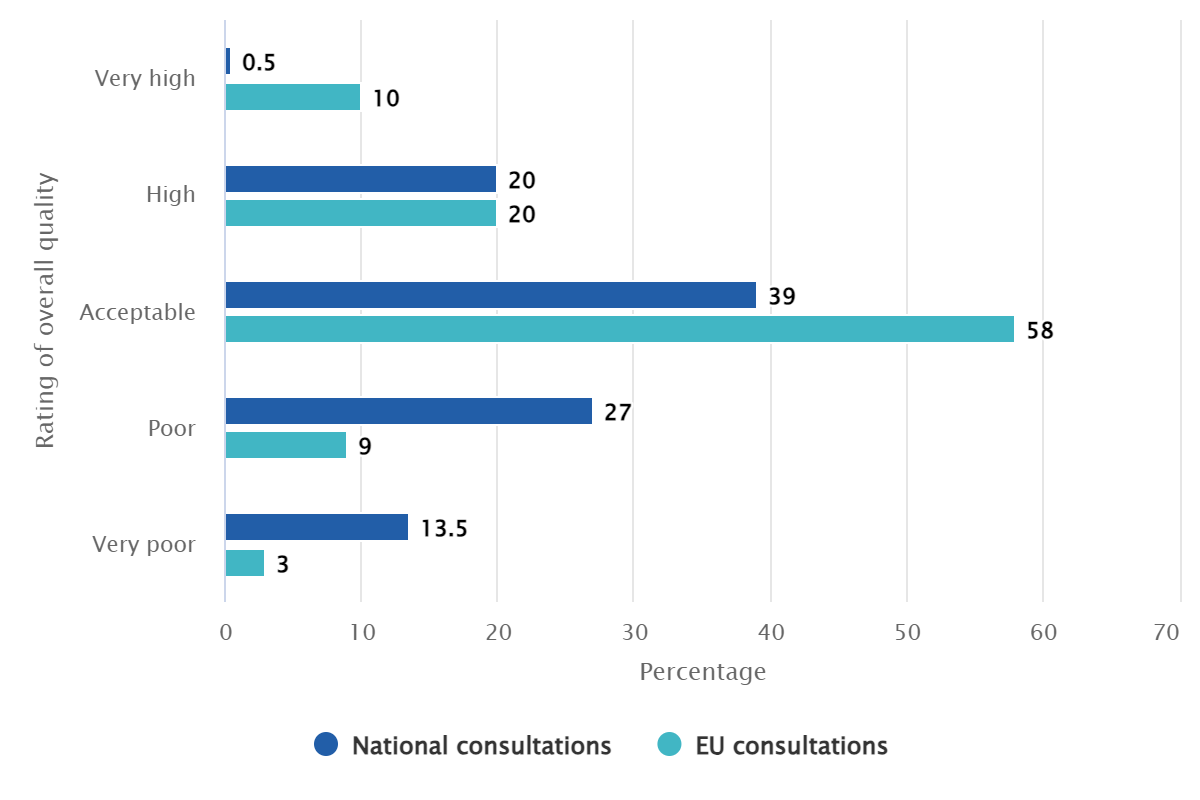
A bar chart compares the quality ratings of processes for national and EU consultations. 13.5% of organisations rated national consultations as poor compared to 3% of organisations which rated EU consultations as poor. In general, national consultations received lower quality ratings than EU consultations. 10% of EU consultations were rated as very high compared to 0.5% of national consultations.
Notes: Question: “How would you rate the overall quality of the consultation/participation processes in which you have participated?” National, N = 184; EU, N = 120.
Source: FRA’s civic space consultation 2022
Participation – both in the development of laws and policies and in their implementation – remains patchy across the EU. Key challenges that CSOs face include difficulties caused by the timing of consultations (54 %), a lack of outcomes and feedback (50 %) and weaknesses in the consultation process itself (45 %). Other challenges encountered are accessing information about consultations (38 %) and a lack of capacity of organisations to contribute (time, skills, knowledge) (28 %) (Figure 12). Accessing consultations was perceived as even less challenging (16 %).
Figure 12 – Difficulties CSOs encountered in participating in consultations (%)
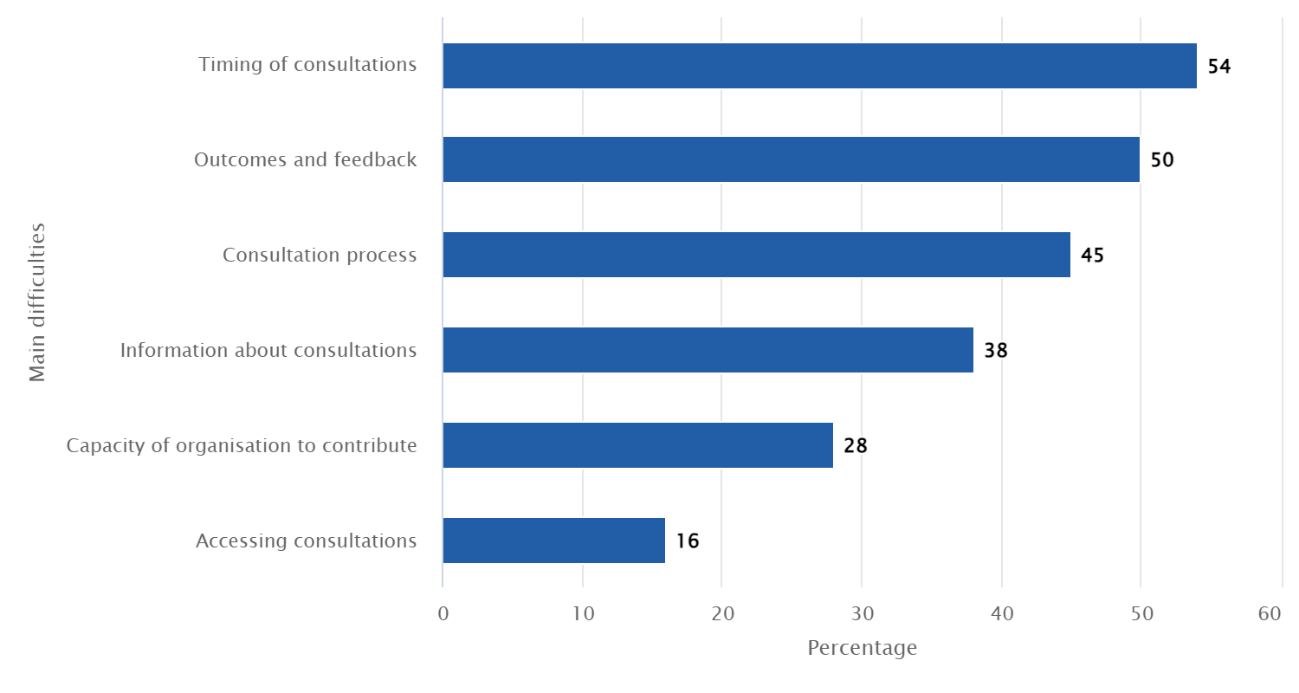
A bar chart shows the percentage of organisations which encountered different types of difficulties. Descriptive text can be found in the paragraph preceding the figure.
Source: Question: “What were the main difficulties you encountered in national consultations/participation?” N = 194.
Source: FRA’s civic space consultation 2022
Notwithstanding these persisting challenges, a number of Member States initiated or consolidated participation mechanisms in 2022, according to data that Franet collected.
In June 2022, the Czech Government Council for Non-Governmental Non-Profit Organisations went beyond merely consulting on law and policies. It adopted a methodology for non-governmental non-profit organisations to take part in in working and advisory bodies and in preparing administrative documents, which a working group specifically set up for this purpose drafted. The methodology contains recommendations on appropriate conditions and resources for the meaningful participation of both the state and NGOs. It applies to ministries’ and other central administrative authorities’ development of public policies, strategic materials, and legislative and other non-legislative materials.[181] Franet [Institute of Sociology of the Czech Academy of Sciences] (2022), An update on developments regarding civic space in the EU and an overview of the possibilities for human rights defenders to enter EU territory - Czechia
Another example comes from Slovakia, where the government approved a concept paper on the development of civil society for 2022–2030 in September 2022. The paper included an action plan for the development of civil society. The main areas the paper covers are promoting active citizenship (participation); deepening dialogue (improving cooperation between the public and civil society sectors); boosting the systemic resilience of civil society; and, finally, systematically collecting data about civil society.[182] Franet [Centre for the Research of Ethnicity and Culture] (2022), An update on developments regarding civic space in the EU an an overview of the possibilities for human rights defenders to enter EU territory - Slovakia
Other EU Member States have made some progress in establishing increasingly permanent and institutionalised structures of cooperation. In Lithuania, for instance, an increasing number of government institutions identify CSOs as strong and vital partners in addressing difficult situations. That is thanks to intersectoral cooperation that started during the COVID-19 response and continued during the migration crisis on the border with Belarus and as a result of the need to accommodate and provide humanitarian support to refugees from Ukraine.[183] Franet [Lithuania Centre for Social Sciences] (2022), An update regarding civic space in the EU and an overview of the possibilities for human rights defenders to enter EU territory.
In other EU Member States, such progress materialised at local level. For instance, Latvia prepared a new local government law establishing mechanisms to ensure civic participation in the work of local governments. The overall aim of these mechanisms was to increase the quality of the work of municipalities and its relevance to their residents. The law provides for the establishment of advisory resident councils in municipalities, to be elected at general meetings of residents.[184] Franet [Latvia Centre for Human Rights] (2022), An update on developments regarding civic space in the EU and an overview of the possibilities for human rights defenders to enter EU territory: Latvia. Finally, NHRIs also have an important role in facilitating CSOs’ and other human rights defenders’ participation in decision making and policy making. [185] The European Network of National Human Rights Institutions (2023), State of the rule of law in Europe - 2023, August 2023.
When it comes to participation in law making and policymaking, organisations representing groups and people at risk of exclusion experience a range of hurdles, feedback from civil society indicates.[186] FRA’s focus group discussion with representatives of CSOs on 7 July 2023; focus group discussions with representatives of youth organisations on 11 and 22 May 2023; focus group discussions with anti-racism CSOs on 26 February and 9 March 2021; European Disability Forum (2022), Human rights report on political participation of persons with disabilities, Brussels, European Disability Forum; FRA (2014), The right to political participation for persons with disabilities: human rights indicators.
In particular, organisations representing and defending the rights of people with a migrant background and with unsecure residence status, people seeking asylum, LGBTIQ+ people, people with disabilities, and ethnic and racial minorities encounter serious obstacles in accessing formal channels of political participation and representation, exacerbated by intersectional characteristics, particularly gender, age and economic status.
For a start, such organisations share similar challenges to all other CSOs in participation processes (see Section 5.1). These include limited political will of policymakers to consult meaningfully, difficulties in accessing consultations, weaknesses in the consultation process itself, insufficient feedback on follow-up after consultations, and insufficient capacity of organisations to contribute, including due to a lack of funding for such processes.
Such challenges are exacerbated for organisations representing groups and people at risk of exclusion, for four main reasons.
Firstly, some groups advocate for issues such as migrant or refugee rights, LGBTIQ+ rights, sex workers’ rights or sexual and reproductive health and rights. Since some parts of the population consider these issues controversial, granting human rights to these groups or individuals facing exclusion can be contentious. In focus group discussions with FRA, organisations concerned reported that they often felt that they were not listened to, that efforts come across as tokenistic and that initiatives do not always feel meaningful. They sometimes felt they were not invited to consultations because they were perceived as “too critical” and that in a few cases officials had even ridiculed or insulted them during consultation meetings.[187] FRA’s focus group discussion with representatives of CSOs on 7 July 2023; focus group discussions with representatives of youth organisations on 11 and 22 May 2023; focus group discussions with anti-racism CSOs on 26 February and 9 March 2021.
In this regard, there are concerns about the emergence of loyal government-organised NGOs, (‘GONGOS’) and anti-rights groups, as the European Parliament and others have pointed out.[188] European Parliament (2022), Report on the shrinking space for civil society in Europe, P9 TA(2022)0056, 22 February 2022, para. 41.
Social media companies may limit public participation as well.[189] See OHCHR (2021), ‘Moderating online content: Fighting harm or silencing dissent?’, 23 July 2021.
For instance, sex-positive organisations found that their accounts were deleted without prior notice.[190] FRA’s focus group discussion with representatives of CSOs on 7 July 2023; ‘Instagram is removing sex-positive accounts without warning’, 9 June 2023.
Secondly, excluded people often experience multiple forms of discrimination. However, such intersectionality is not always on the radar of policymakers. Failure to include organisations representing certain excluded groups not only may result in those groups’ inputs being neglected, but also means that intersectional needs could be overlooked.[191] See, for instance, European Confederation of NGOs working on sustainable development and international cooperation (CONCORD) (2022), ‘Building partnerships through meaningful consultation: 7 practices for civil society participation in EU decision-making’, 8 November 2022, p. 3; World Health Organisation (n.d.), ‘Participatory approaches to enhance health practices, policies and services’; World Health Organisation (2023), WHO framework for meaningful engagement of people living with noncommunicable diseases, and mental health and neurological conditions, Geneva, World Health Organization.
For example, a lack of an intersectional approach to ensuring that people with disabilities can exercise their rights renders the voices of migrant women and other minorities with disabilities unheard and their specific needs unmet.[192] See, for instance, European Parliament Think Tank (2021), ‘The traumas endured by refugee women and their consequences for integration and participation in the EU host country’, Brussels, 19 April 2021.
Similarly, disability organisations are not always consulted on issues concerning older people, youth or children; and LGBTIQ+ organisations are not always consulted for gender equality related programmes or policies.[193] FRA’s focus group discussion with representatives of CSOs on 7 July 2023.
CSOs found that the intersectional disadvantages Roma women face were not sufficiently taken into account in a national Roma inclusion strategy.[194] Roma Civil Monitor (2022), Civil society monitoring report on the quality of the national strategic framework for Roma equality, inclusion, and participation in Hungary, Luxembourg, Publications Office.
In addition, some governments are changing their focus from gender mainstreaming to “family mainstreaming”, thus sidelining discussions on gender equality and women’s rights.[195] FRA’s focus group discussion with representatives of CSOs on 7 July 2023; see also Wired (2023).
Thirdly, difficulties in participation may arise from structural disadvantages within the CSOs themselves. This is particularly true of organisations run by people identifying as part of an excluded group. Such organisations are often run by volunteers with little financial or human resources. In the case of youth organisations, this is further exacerbated by the naturally high turnover in the sector. [196] See European Youth Forum (2022), Safeguarding Civic Space for Young People in Europe.
Some funding sources are available only for larger established NGOs, meaning that smaller grassroots organisations cannot access them. Such organisations often have no core funding at all. This makes sustained participation difficult, as essentially any contribution to consultations needs to happen in volunteers’ private time. There is also usually no budget available to travel to and attend stakeholders’ meetings.[197] European Commission (2023), Summary Report, A thriving civic space for upholding fundamental rights in the EU: looking forward - Follow up seminars to the 2022 Report on the Application of the EU Charter of Fundamental Rights (forthcoming); FRA’s focus group discussion with representatives of CSOs on 7 July 2023.
CSOs have reported that in some instances, organisations representing groups at risk of exclusion were denied funding in a discriminatory way due to the issues they are working on. [198] Focus group discussions on 26 February 2021, 9 March 2021 and 7 July 2023.
Other challenges internal to organisations include a lack of knowledge and skills to cover specific or specialised fields, including a knowledge of languages. Translation/interpretation is often not available.
Another specific challenge is the lack of official documentation or other legal requirements granting safe status to the members of the organisations, for instance in the case of undocumented migrants or sex workers. Their precarious situations create additional difficulties for them in organising and speaking up for themselves, as some may fear that raising their voice could result in losing their job and/or legal status.[199] See, for instance, UN (2023), ‘Participation of vibrant civil society, marginalized communities crucial for achieving global goals, speakers tell high-level political forum’, 14 July 2023.
Finally, many channels of participation are not accessible for people with disabilities, especially people with intellectual disabilities, people with disabilities living in institutions, and for people without citizenship and/or secure residence status.
Fourthly, participants in FRA’s focus groups pointed out that people belonging to excluded groups - such as people with disabilities living in institutions or survivors of institutionalisation, migrants and people without residence status, and children, young or older people - may lack self-confidence and empowerment. That lack can be based on their previous experiences and/or their position in society.[200] FRA’s focus group discussion with representatives of CSOs on 7 July 2023; focus group discussions with representatives of youth organisations on 11 and 22 May 2023; focus group discussions with anti-racism CSOs on 26 February and 9 March 2021. See also Kamruzzaman, P. (2020), ‘Exploring the nexus between participation and empowerment’, Journal of Development Policy and Practice, Vol. 5, No. 1, pp. 32–53; and Green, D. (2013), The role of the state in empowering poor and excluded groups and individuals.
In this context, CSOs can play an important role in empowering groups at risk of, or experiencing, exclusion.[201] See, for instance, Aditus (2022), ‘Training kit for empowering refugee-led community organisations’.
However, often only larger organisations focusing on broader issues are invited to participate. These organisations therefore have to be particularly careful not to become involuntary gatekeepers but to ensure that those that are most excluded have a seat at the table.
There are many ways to improve the involvement of excluded groups and the organisations representing them, as existing experience across the EU shows. It is necessary to raise awareness of the need to broaden consultation processes and to ensure that self-representing groups are consistently included both in online consultations and in stakeholder meetings at national and EU levels. Dedicated funding is needed to support organisations’ participation in online consultations and in-person consultation meetings. Self-representing groups could feel empowered by being adequately included, for example, by being invited to participate and being listened to, being provided with dedicated capacity-building opportunities, by being provided with easier access to funding,[202] See also PICUM (2023), Protecting the rights of undocumented migrants: PICUM priorities ahead of the 2024 EU elections, Brussels, PICUM, p. 5.
and by being able to participate in the design, implementation and monitoring of EU funding programmes, including funding earmarked for self-representing groups.
Some groups, including people with disabilities, will need special assistance to participate fully in consultation processes, while others will need assistance such as translation or interpretation.
Meaningful engagement is the respectful, dignified and equitable inclusion of individuals with lived experience in a range of processes and activities within an enabling environment where power is transferred to people; valuing lived experience as a form of expertise and applying it to improve [...] outcomes.
World Health Organization (2023), WHO framework for meaningful engagement of people living with noncommunicable diseases, and mental health and neurological conditions, Geneva, World Health Organization.
